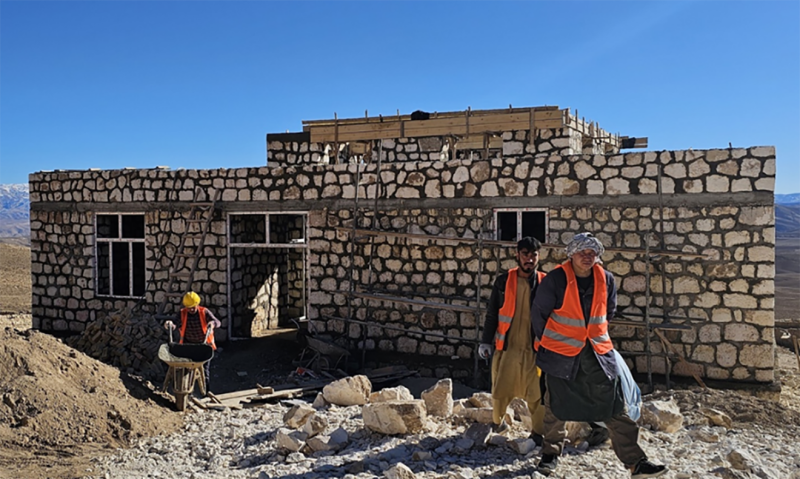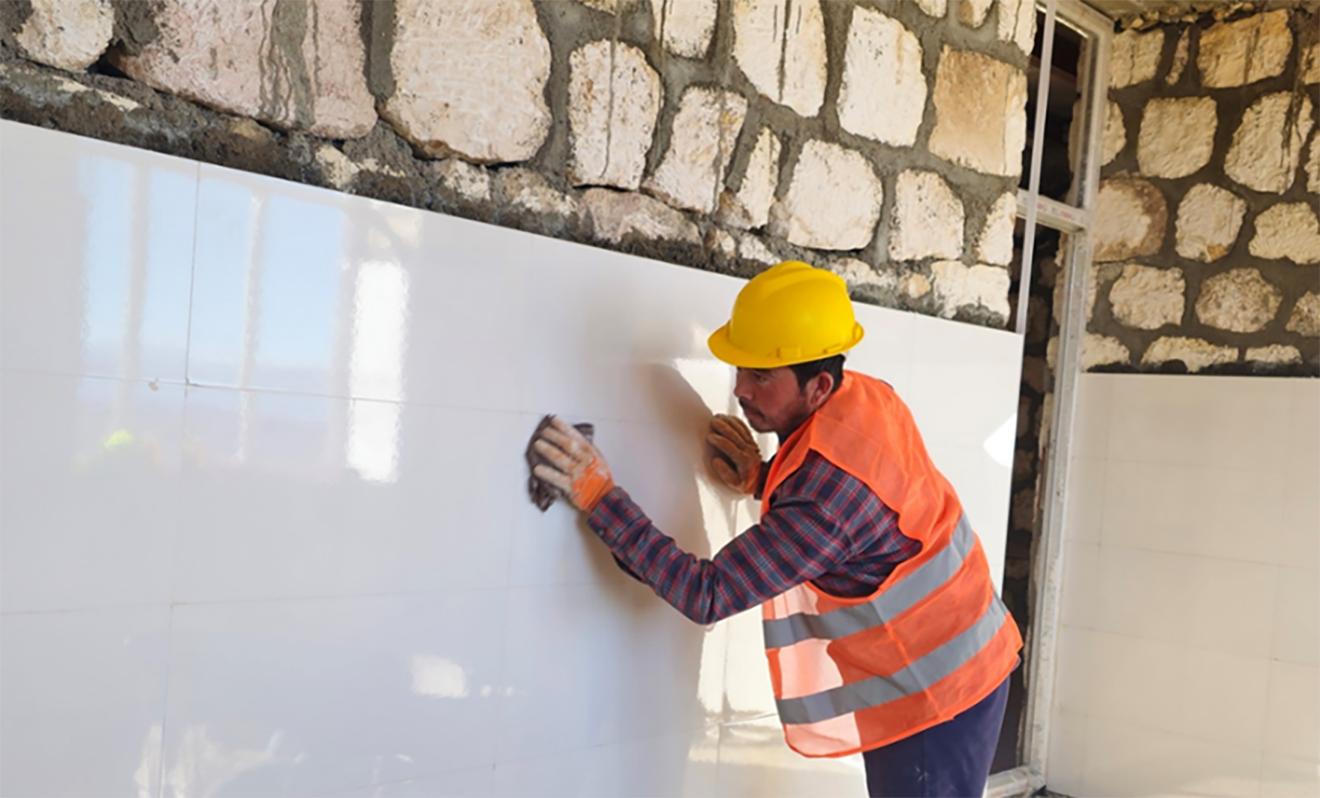

In the remote reaches of Royee Duab district in Samangan province, Afghanistan, the rural village of Charcheshma faces a critical challenge—access to adequate healthcare, especially for its most vulnerable residents, pregnant women and children.
The nearest clinic, located two hours away in the town of Royees, has been particularly inaccessible during the harsh winters, with roads becoming impassable and transportation costs skyrocketing.
In response to these challenges, the UNFPA, through a local NGO partner, deployed an experienced midwife along with necessary medications. While this initiative alleviated some difficulties for pregnant women, the community needed more durable solution. Seeking to address this need, IOM, in collaboration with UNFPA and UNDP, with support from the Special Trust Fund for Afghanistan (STFA) and others, initiated the construction of a Family Health House (FHH) in the heart of the village.
This facility features six rooms, including a dedicated delivery room, pre-checkup room, and a psychosocial consulting room, with two attached bedrooms that enable comprehensive care. With an aim to reduce child and maternal mortality rates, the facility offers medical services at no cost to all community members, thereby, improving overall health outcomes.

The FHH not only enables life-saving medical services to village residents but also serves as an economic lifeline for the community. Employing 18 skilled and unskilled laborers, the project provides vital short-term employment. Among these skilled workers is Mohammad, a 28-year-old who had returned to the village after being deported from Iran four years ago.
For Mohammad, the project was more than just a job; it was a chance to rebuild his life in his hometown. Previously forced to travel long distances for work, he now enjoys the stability of being employed close to his family. With the birth of his first child, he experienced the hardships of traveling six hours to the nearest medical center for medical care, grappling with high transportation costs and medical bills. Now, thanks to the FHH, such daunting journeys are a thing of the past for him and the community.
Expressing his satisfaction, Mohammad highlighted the broader impact of the FHH on the community. Not only did it significantly reduce child and maternal mortality, but it also became a vital resource for treating common diseases such as colds and fevers. Mohammad said, “I am grateful for the initiative as now our community has a central hub for health services through this FHH.”